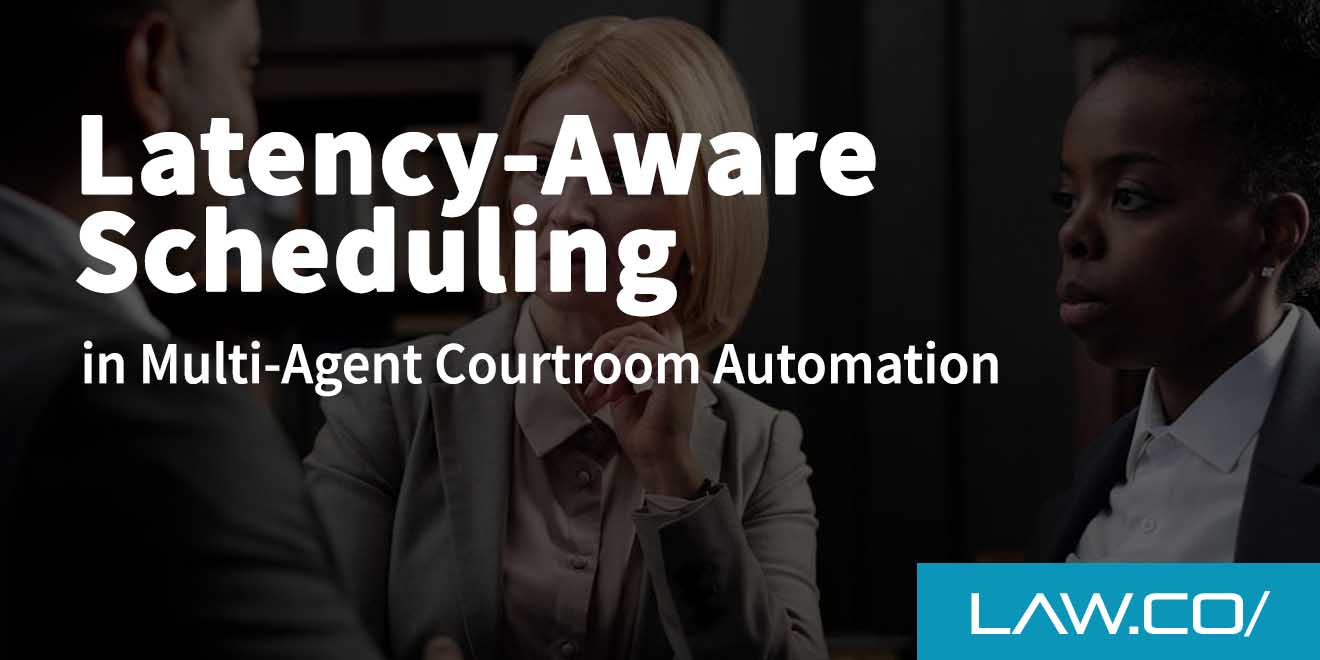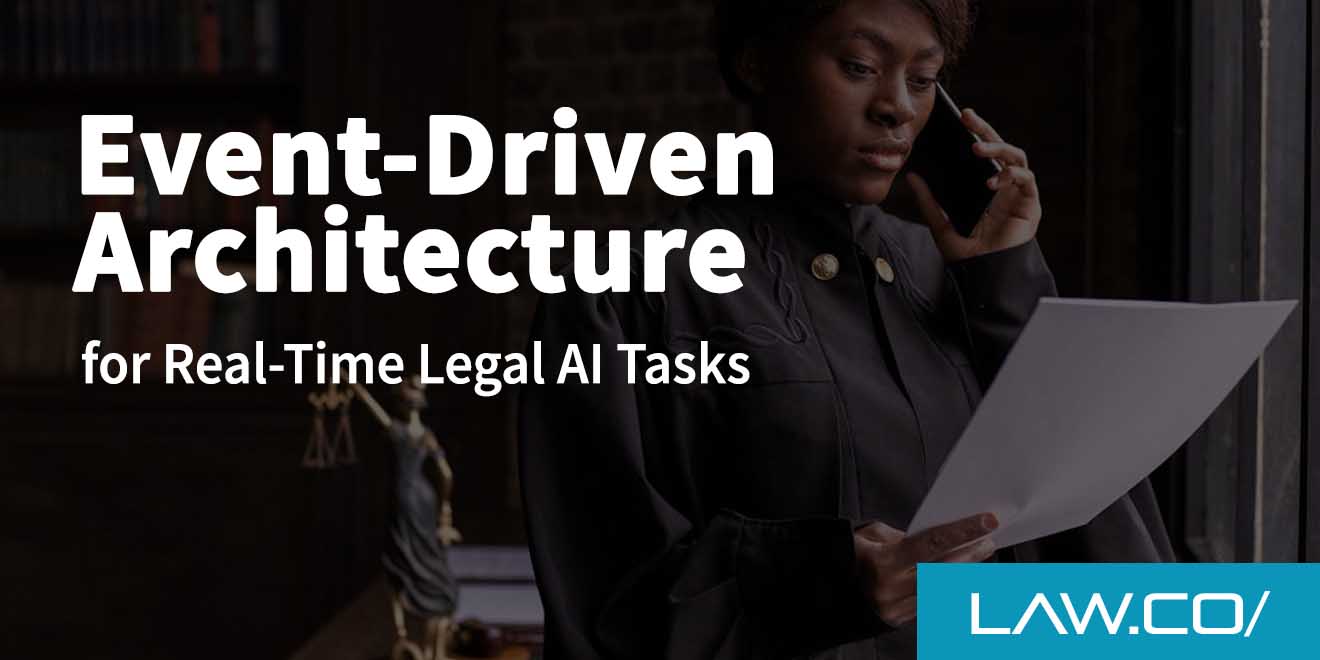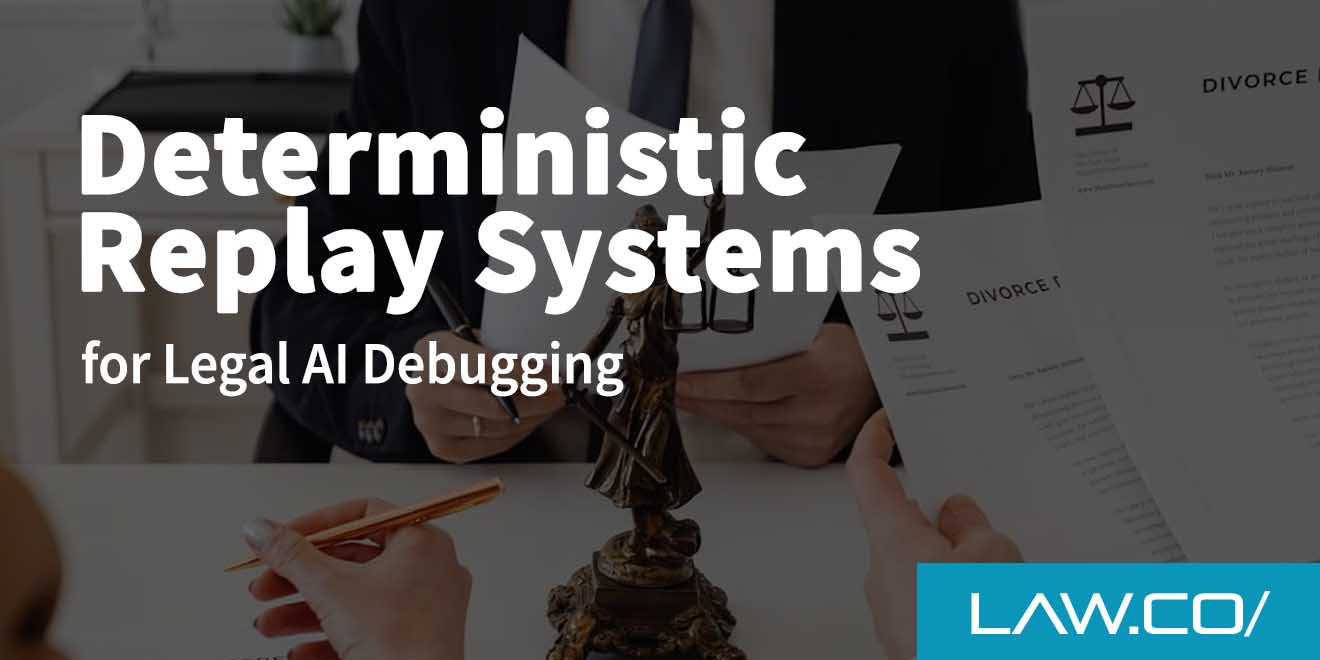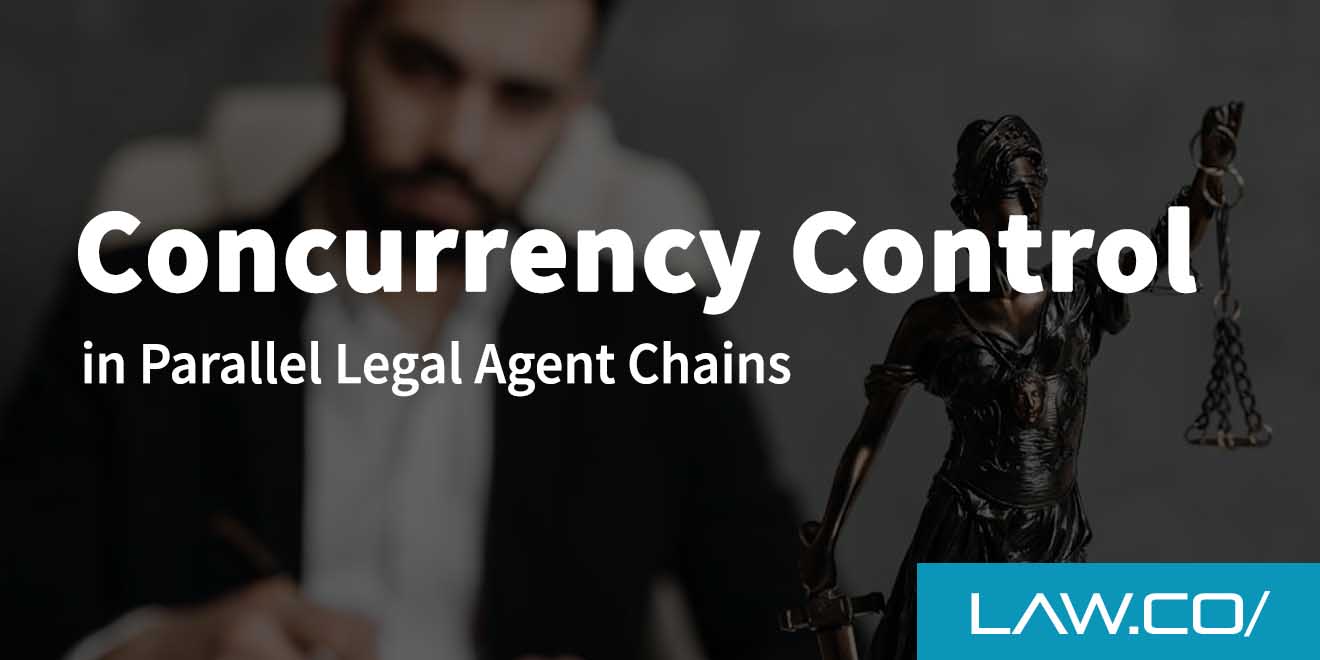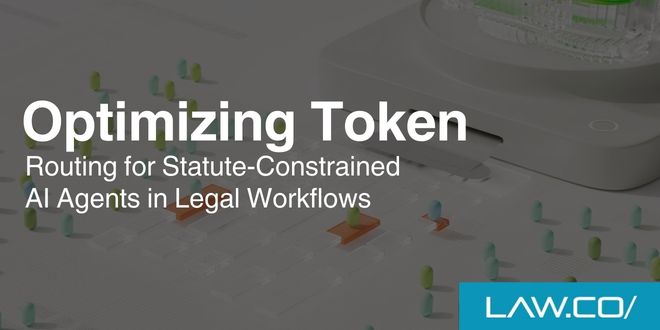

Cons of AI for Lawyers and Why Many are So Reluctant to Use AI?
Artificial intelligence (AI) is taking over the world, not necessarily in a Skynet way, but in a way, that's forcing millions of people to reevaluate the type of work they've done in the past – and the type of work they might do in the future.Here at Law.co, we specialize in creating generative AI tools that help lawyers in many aspects of the legal profession, from researching cases to evaluating contracts. And we've seen countless lawyers clamor to integrate this type of technology into their practice.But there is a discrepancy.While the majority of lawyers working for firms and working for themselves are generally interested in the potential of AI, even though some might have some reservations or skepticism, the numbers are much poorer among in-house lawyers for other businesses.Roughly two-thirds of in-house lawyers in departments with 11 or fewer employees are currently not interested in purchasing AI or AI-based tools. Many of them are staunch believers that AI is either a fad or, at least, oversold, and that it doesn't have the potential to transform the legal industry.Why is it that so many in-house lawyers are reluctant to use AI?And are these reasons valid?
The Dynamics and Pressures of In-House Lawyers

First, we should note that the legal profession is often averse to technology. It's a profession full of traditionalists who like to exercise their skills and who are generally skeptical and critical of major changes to the field. And there's some good reason for this. Introducing a young, unreliable technology into a field that requires intense attention to detail and accuracy isn't always a good move.It's also important to acknowledge that in-house lawyers face dynamics and pressures that other lawyers don’t typically face, especially in the context of AI. If you're on your own, or if you run your own law firm, you might be more comfortable making broad changes about how you approach legal work. In a corporate environment, as in-house counsel, you're on arguably shakier footing. On top of that, if the business you work for is constantly looking for cost-cutting opportunities, you may be more likely to feel threatened by a technology that has the power to do much of what you currently do.Another interesting dynamic to note is that in-house lawyers often work in smaller departments, with less communication between other lawyers in the field. If you're not meeting with and talking with lawyers on a regular basis, you may not be familiar with all the advanced ways that AI can help you with your job.With these factors in mind, what are some of the reasons that in-house lawyers use to delay or avoid the use of AI technology in their jobs?
Cost
Any new technology is going to come with a cost. It takes time, resources, and energy to develop new tools, so rightfully, the engineers who make those tools charge money for access to them. If you understand that AI is an incredibly powerful new technology, you might automatically assume that these types of tools are unaffordable.But this is not the case, and it doesn't take much research to figure out that AI tools designed for lawyers are actually quite affordable. In some cases, you can start using an AI tool for things like viewing documents, summarizing cases, searching databases, and reviewing contracts for free (with a limited amount of activity in each category).If you're willing to pay around $39 per user, per month, you can get almost unlimited access to all the core features you'd want. This adds up to a few hundred dollars, per user, per year – which is more than reasonable for a tool that could save you hours of work every week.Even if AI tools for law firms were more expensive, it's hypothetical that they would be worth the money. Simple calculations here can demonstrate whether the investment is worth it; consider your hourly rate, figure out how many hours this tool can save you over a period of time, and determine whether the calculus makes sense. If the tool costs $39 a month, it can save you 30 hours of work a month, and your hourly rate is $250 an hour, you can infer that a $39 investment saves you $7,500 in labor.
Risk
Some in-house lawyers are reluctant to pursue AI because they’re wary of potential risks, and generative AI does pose some key legal and operational risks in a business setting. If you rely on this tool extensively, cutting corners and allowing the tool to do the work for you, you could end up unwittingly citing a case that doesn't exist, revealing sensitive personal information, or otherwise violating laws or ethical codes.On top of that, relying exclusively on AI tools for the bulk of your work can cause some of your skills to erode if you aren't careful. If you submit all your contracts to the tool directly, you may eventually get weaker at reviewing those contracts yourself.There's no way to eliminate the risks of using AI, but the same is true for almost every aspect of the legal profession; risk always exists.Additionally, most of the risks identifiable with AI tools meant to serve the legal profession can be controlled for. If you understand the weaknesses and limitations of generative AI, you can enact measures to compensate for them; for example, you can introduce workflows and processes that force human lawyers to review any work submitted by AI or improve data protection standards to ensure that sensitive data is never compromised.Additionally, you can avoid skill erosion by making sure to practice your own skills at least occasionally.
Job Insecurity
It's likely that many in-house lawyers were initially critical of the introduction of AI tools out of a sense of job insecurity, even if they didn't express this explicitly. AI anxiety is reasonable and it's currently affecting millions of people. In the span of just a few years, we've seen the rise of countless tools that can replace jobs that were previously thought to be irreplaceable by automation technology. Now, there are tools that can do most of the tedious aspects of the legal profession, including researching, processing information, and completing paperwork.If you thought that a new technology was going to cause you to get laid off or fired, would you really be eager to incorporate that technology into your workplace?Of course not. But in-house lawyers are missing something important: legal AI tools are nowhere near the level of sophistication required to replace human lawyers, and they probably won't get there anytime soon. For the foreseeable future, it’s going to be necessary for human lawyers to guide these tools, modify results from these tools, and generally act as knowledgeable supervisors for whatever tasks these tools carry out. In other words, AI isn't replacing your job; it’s simply supplementing it.
Patience
Some in-house lawyers probably don't have any crippling fears or concerns that are holding them back – but they want to make sure this technology is safe, reliable, and proven before they adopt it. In other words, they're simply exercising patience, waiting to see whether the AI trend is merely a short-lived fad or the next step in evolution for the legal profession.In some respects, there's nothing really wrong with this view. It's often wise to wait on the second or third iteration of a new technology before adopting it, so all the bugs can get worked out and people can develop better philosophies and processes for using these technologies.But again, there is an issue. If you fail to adopt a tool that can increase your productivity and/or the quality of your work, you'll effectively be limiting yourself for as long as you continue avoiding this technological adoption. Moreover, these effects compound with time; if an AI tool can save you 30 hours of work every month, and you delay adoption of this tool for a year, you'll recently be costing yourself 360 hours of effort.
Perceived Adoption Hurdles
Another common reason why in-house lawyers are reluctant to pursue AI for legal research is perceived adoption hurdles. In-house lawyers aren't necessarily in charge of creating or maintaining technological infrastructure, but they do know the difficulties associated with training and educating people how to use something new.They may have difficulties adapting to new technologies themselves, or they may have concerns about how they're going to deal with employees and colleagues who can't navigate this technology easily.This has certainly been a reasonable point of contention for other advanced technologies in the past, but generative AI in the legal profession is designed to be as intuitive as possible. If you've ever tried ChatGPT, you've experienced this firsthand. Many generative AI tools are designed to be conversational in nature, so as long as you're a decently competent communicator, you should be able to get these types of tools to give you the results you want.
General Fear of Change
Finally, it's reasonable to suspect that many in-house lawyers simply have a general fear of change. They're not necessarily afraid of losing their jobs, allowing their skills to erode, or introducing new risks to their employer, but they have a generally unsettling feeling about what this technology will be like once it's adopted.Obviously, this feeling isn’t rational, but it does have a real effect – so it’s worth acknowledging and addressing.
Why Law Firms Are Adapting Faster

Most lawyers that are not in-house are considerably warmer to the prospect of using generative AI as part of their daily responsibilities. Even small law firms, with limited budgets and limited tech infrastructure, seem to be adapting faster to this technological breakthrough than their in-house lawyer counterparts.Why is this the case?There are several possible explanations. It could be that there's more competitive pressure for these law firms to distinguish themselves. It could be a greater sense of authority and security that enables them to look past some of the weaknesses and limitations of this technology. It could even be access to greater resources and controls to mitigate risk.In any case, if they're going to keep pace with their peers, it's imperative for in-house lawyers to at least seriously consider the benefits of adopting generative AI technology.
Is AI Inevitable for Lawyers?

Can we consider AI to be an inevitable development for the legal profession?In some ways, yes, as it's already here. Whether you like it or not, millions of lawyers and paralegals are already using generative AI technology to research faster, review contracts more thoroughly, and free up time that they can spend on their most important responsibilities. They have a distinctive competitive advantage over anyone who refuses to use such tools.In such an environment, lawyers basically have two options: they can adapt to these technological changes, or they can succumb to them. In time, legal professionals who refuse to incorporate even limited forms of AI are going to become outclassed by their AI-equipped contemporaries.The big question is when this transition is going to happen. AI is still relatively new, and the legal profession is still slow to change. Accordingly, it’s unlikely that in-house lawyers will feel the intense pressure to adopt these tools in the next few years – but in the next decade or two, that pressure becomes more likely.
Mitigating AI Concerns in Law Firms
There are many valid reasons to be concerned, or at least thoughtful, about the role that AI plays in the legal profession. But it's also important to recognize that there are many valid ways to mitigate the weaknesses and concerns of AI tech. Every technology is associated with risks, and nearly all of those risks are manageable with the right approach.AI doesn’t have to be threatening. It doesn’t have to be scary. It doesn’t even have to be expensive. If you’re ready to embrace the future of your profession, and expand your capabilities as a lawyer, contact us for a free consultation today!

%201.svg)


